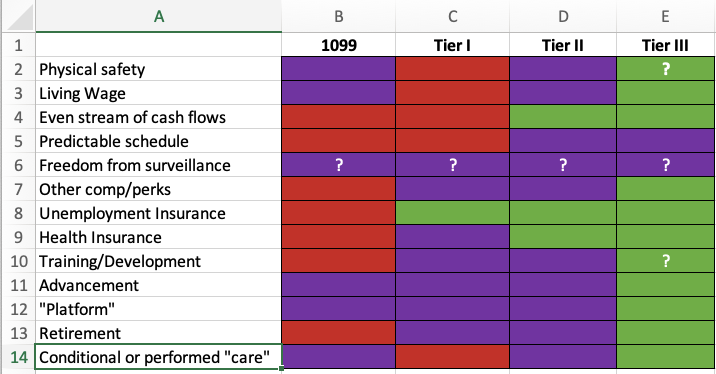Warm Take: Who Wants to Work with a King? May 2, 2021

In case you missed it, Game of Thrones is an epic fantasy. Set in an intricately constructed world, it's about kingdoms and power. As such, racism, misogyny, classism and violence are features, not bugs. Also, impending apocalyptic evil, magic, and dragons.
I’m pretty steeped in another intricately constructed world: we call it “tech;” and it’s real. It's geographically centered around San Francisco, NYC, Austin, Seattle, Toronto, Chicago, and beyond. It exists virtually via media, Twitter, group chats, and Slack threads.
This week, parts of this world were agog over news of events at a 57-person company called Basecamp. The 20-year-old software company is founder-led and mostly founder-owned.
This news was unknown to several worldly, well-read people in my non-tech circles -- so if you aren't agog, you're in good company. Here's my brief Warm Take.
This week, Basecamp founders made public announcements about internal “policy changes.” Workers at Basecamp responded publicly. They spoke out, blogging and tweeting about problems at the company. Then, at least 20 of Basecamp’s 57 employees took buyouts to leave the company. Ouch.
One of the more surprising moments I’ve had in startup-land was maybe 6 years ago, talking with a group of emerging managers. The topic was corporate values. I wanted to illustrate that an organization’s actual values exist only through people’s behavior. That, to be real, values can't simply be posted on a website, or printed on swag. The real values are made by what we do every day, over and over.
Enron’s formal corporate values, I said, had looked a lot like the values you could find on About pages of many startup websites.
There was pushback; how could I say that their organization, or Awesome Company X, might be anything like Enron? An engaging conversation followed.
I loved the discussion. But my own take-home pained me: many seemed willing to uncritically accept what they heard about an organization. Based on what the organization said about itself. Especially if it was a Very Cool Startup.
In conversations since then, I've observed that people are particularly vulnerable to corporate messaging when they’re looking for a job.
In this week's swirl of tweets and group chat messages, I read a bunch of things by Basecamp's workers. Two really stuck with me. One person tweeted that, though they worked at Basecamp, they had silently steered friends away from working there. Another had chosen Basecamp in their job search after having determined it to be one of the "great companies" in the US Midwest.
No matter how skilled you are as a manager, you need support to be effective. An organization's leaders have to actively and visibly demonstrate their care about people management, and people.
Reading what a company writes about itself is insufficient due diligence. You have to dig beyond the corporate website, the stellar resumes of people who work there, the CEO’s blog posts or books.
You have to talk to people. Especially in very small organizations, you’ve got to talk with people who work there, people who have left.
For starters, it’s good to know who really runs things. Who has their ear?
At Basecamp, the founders ran the place. Advised, until recently, by their Small Council.
What's a Small Council, you might ask? Well, it’s a group of advisors empaneled by a King. In Game of Thrones.
You don’t have to spend 3 days of your life watching Game of Thrones (like I did lol) to know why this matters. You don’t have to know the GoT catchphrase, “When you play the game of thrones, you win or you die.”
You only have assess whether a "great" company could be led by someone who might think he’s King.
Like my other Warm Takes, this was informally written over my Sunday morning coffee. Interrupted by a trip to Home Depot. Though it will be sawdust free, it may contain typos.
There's still a bit of transition to accomplish in moving newsletter service providers -- if you're process curious, I gave a bit more info in my last Supporting Member update.
Thank you for your time, attention, and consideration. Please do send me your questions, comments, suggestions. And bring me your pushback!
May you and yours be safe, healthy and free.
5/5/2021: I updated this post after the email went out. I removed info related to my transition in newsletter providers, corrected a couple of grammar errors (but not all of them lol) and made a couple of sentences clearer, thus hopefully clarifying my point.





